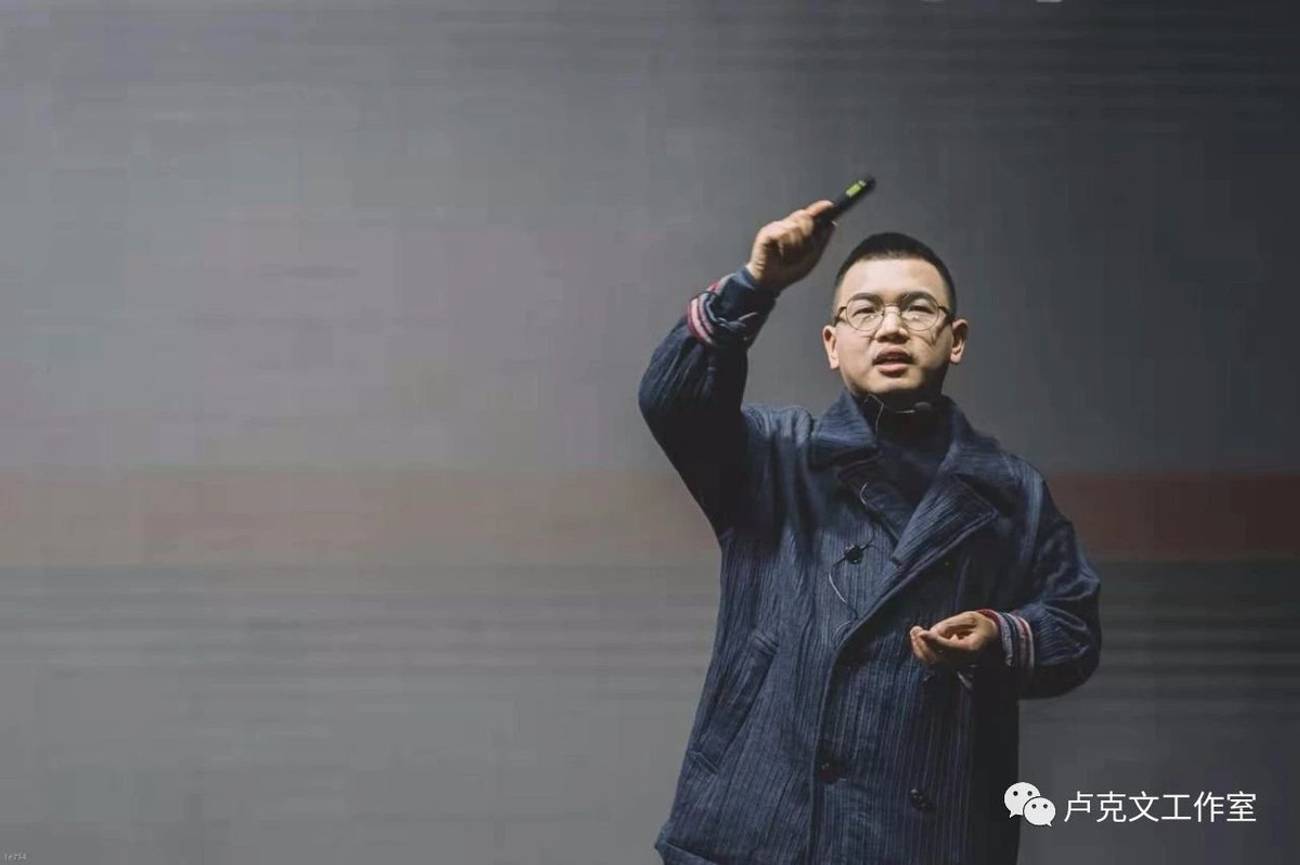Antisemitism With Chinese Characteristics
Influencer Lu Kewen puts Jews in the crosshairs of ‘Xi Jinping Thought’




If you ask Chinese diplomats stationed in Israel, they will tell you that “there is no antisemitism in China.” Their Israeli counterparts in Beijing will likely tell you the same: that an observant Jew can stroll down any main street in Shanghai with a yarmulke on his head without fear of verbal or physical harassment—which cannot be said for a growing number of European and American cities—and that the only swastikas he is likely to see are in Buddhist temples.
But this oversimplification is contradicted by other Chinese realities. Since the most recent conflict in Gaza in May 2021, antisemitic tropes and sentiments have been propagated on Chinese state media, encouraged by top Chinese diplomats, and rehashed by well-known Chinese political commentators. Not that China was unique in this respect: Antisemitism masquerading as legitimate criticism of Israeli policy pops up all over the world when Israeli-Palestinian hostilities flare; according to the World Zionist Organization and Jewish Agency annual report, antisemitic incidents soared in dozens of countries as a result of the 2021 Gaza crisis, not just in the People’s Republic of China.
The key difference in China’s case is that it is a country where speech is heavily regulated, monitored, filtered, and self-censored, and so a new wave of Jew-hatred there must be seen as not only tolerated, but openly promoted. Indeed, a new generation of Chinese cyber nationalists, well-connected pundits, and media-savvy “influencers” have been granted carte blanche to make careers out of poisoning the minds of China’s billion-plus active internet users with paranoid clickbait, including about “the Jews.”
Consider the case of Lu Kewen.
The 39-year-old Lu is the owner and founder of Lu Kewen Studio, a Beijing-based “self-media” online news channel that produces videos and original commentary on a wide range of military, historical, political, and economic issues. Since its establishment only three years ago, Lu’s enterprise has reportedly amassed a following of 15 million subscribers across several mainland social media platforms; in September 2021, Lu was appointed as the spokesperson for Chinese automaker behemoth BYD, which likened him to the revolutionary literary hero Lu Xun. The meteoric rise of Lu, an ex-assembly line worker turned media sensation, has sparked envy, admiration, and derision among some Chinese academics and journalists: One typical critic attributes his success not only to his colloquial and user-friendly content, but his willingness “to completely disregard the facts and sensationalize reports for the sake of traffic.”
On May 29, 2021, about a week after the Gaza ceasefire went into effect, Lu posted an 8,000-character screed in five parts titled “What Should We Make of the Jews?” The manifesto is not an original work; it combines antisemitic tropes from medieval Europe with more recent libels from the Middle East in a way that would strike most Western readers as almost pitifully familiar. Entire sections of the work, in fact, appear to be plagiarized or directly translated into Chinese from the darkest corners of the English-language internet. In certain parts, Lu adds his own musings to the mix; in others, he just quotes at length from Mein Kampf and the The Protocols of the Elders of Zion. Long after last year’s Gaza conflict had subsided, Lu continued to publish articles arguing that even if “beaten to death,” he “will never agree that Jews are a good partner to the Chinese people.”

But if Lu’s work is as hoary and derivative as any standard-issue Stormfront post, he has nevertheless been effective at making such hate speech more relatable to an otherwise unfamiliar Chinese audience.

According to Lu’s videos and commentary, Jews are manipulators, penny-pinchers, loan sharks, and drug dealers. More than an ethnic group bound by blood and history, they operate like a private club, an elitist cabal whose members are linked by a web of common interests, “especially the American Jews.” It is through these social connections that Jews have infiltrated key global positions and “took control of the three cornerstones of American society, namely finance, media, and culture.” The Jewish penetration of American power is so far advanced that the Bush, Obama, and Biden families and administrations have all fallen prey to Jewish influence. Because Jews control the anti-China U.S. media and hold key positions in Biden’s anti-China cabinet, they are the “ideological voice” of the United States, the spearhead of the West’s accelerating crusade against the Chinese government and people.
One of the conspiracies outlined by Lu (itself a product of foreign neo-Nazi forums from the late 1990s, around the time of the handover of Hong Kong) accuses Jews of being “the world’s most powerful drug barons” and therefore of being responsible for the eruption of the mid-19th-century Opium Wars, which to this day represent the nadir of contemporary Chinese history. Impressed on every Chinese boy and girl from a young age, the official historical narrative of the Opium Wars is of an Imperial China that was utterly humiliated by foreign, Western powers and forced to sign unequal treaties that violated its sovereignty and left its people drugged, backward, and exploited. And in Lu Kewen’s fantasy, the Jews are to blame for everything.
Why has Lu’s antisemitic content found an audience among a people with very little historical experience or even present concern with Jews? Racist remarks about Jews mixed with admiration for the Zionist movement is an old story, and not uncommon among Chinese reformers, intellectuals, and visionaries such as Liang Qichao, Hu Shi, and Sun Yat-sen. But the widespread adoption of social media by China’s 1 billion internet users over the past two decades has done something different, turning Chinese extremism and cyber-nationalism into a cross-cultural, cross-national phenomenon that feeds antisemitic discourse online.
There are two opposing trends at play: On the one hand, China is an open, globalized superpower connected to the outside world more than ever before; on the other, the fragile Chinese state has turned inward in the face of perceived external threats, including COVID and ongoing strategic competition with the United States. By pitting themselves against the “otherness” of foreign groups, Chinese nationalists hope to rally round the flag and unite disparate Chinese social groups behind President Xi Jinping’s vision of an integrated, civilizational “Chinese” identity.
While Chinese media scholars are divided on whether nationalism is on the rise under Xi, multiple studies and news reports have documented rising rates of racism, chauvinism, populism, homophobia, xenophobia, and Islamophobia in the country. This is no accident: Xi has been personally involved in fostering “patriotic education” designed to imbue Chinese people with “cultural confidence” in their civilization’s “excellent traditional culture,” which is often contrasted with the insidious corruption and evil of various “others” that have put “China under threat.” To the average party official or state censor, even if Lu’s antisemitic content seems a little peculiar, his ideas are seamlessly couched in state-sanctioned nationalistic narratives that warn against foreign encirclement and influence. His calls for stronger government control to safeguard China’s “media sovereignty” from the Jews are likewise more welcome than not.
Furthermore, given the hypersensitivity of Chinese state media to internal criticism, as well as its consistent portrayal of Western countries and political systems as failing and inferior to China’s “matchless superior socialist system,” provocative content on outsiders and international affairs is always a safer bet than anything that touches domestic politics. Something as foreign and faraway as “the Jews” also ensures that there will be no demand for further knowledge or context from the average Chinese internet user, who does not bother with illegally sidestepping the Great Firewall.
Nor is Lu Kewen the only prominent antisemite in contemporary China. A list compiled by the author includes a large number of mainstream antisemitic influencers, celebrated academics, state-affiliated scholars, and renowned strategists with access to elite policy circles. In a recent study, communication scholars Yang Tian and Fang Kecheng from the Chinese University of Hong Kong show how many of these figures collaborate and coordinate content. This network of toxic nationalists—as well as deep-seated philosemitic stereotypes that paint Jews as educated, naturally smart, and good with money—overshadows the many Chinese journalists and academics who have tried to engage the general public on Judaism, Jews, and Israel in good faith.
Unless challenged by Chinese authorities, antisemitism in China is certain to grow. Bigots like Lu Kewen, who believe they speak for the entire population, are emboldened by the ability of Chinese policymakers to whitewash any trace of local racism. Israeli and Chinese officials should begin by acknowledging the existence of this problem, no matter how small it seems now, and utilize current and future platforms on Holocaust education and Jewish history to nip the poison of antisemitism in the bud.
Tuvia Gering is a research fellow at the Jerusalem Institute for Strategy and Security (JISS) and a Krauthammer Fellow specializing in Chinese security and foreign policy. Follow him on Twitter @GeringTuvia.